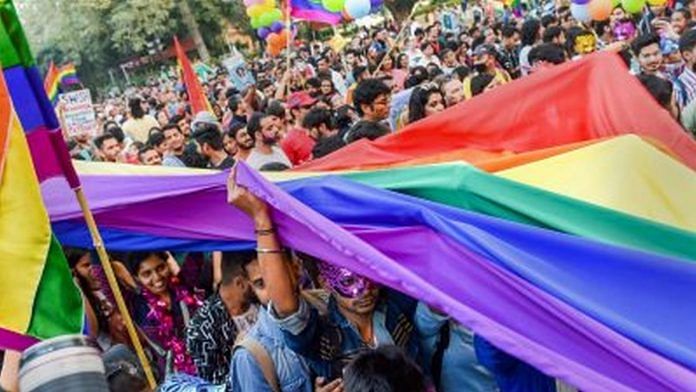New Delhi: A ‘bride’ under the Hindu Marriage Act will now include transgenders and intersex persons who identify as women, said the Madurai bench of the Madras High Court in a landmark ruling Monday.
“The only consideration is how the person perceives herself,” a single-judge bench of the high court said.
The ruling came on a plea filed by a Tuticorin couple — Arun Kumar and Srija — who wished to get their marriage registered by the state. The couple had married last year in October as per Hindu rituals, but state authorities had refused to register their marriage. One of the reasons for the refusal was that Srija, a transwoman, was not a “bride” as per the definition of the Hindu Marriage Act.
“Sex and gender are not one and the same. A person’s sex is biologically determined at the time of birth. Not so in the case of gender,” Justice G.R. Swaminathan said in the judgment, directing the state authorities to solemnise the marriage of the couple.
The judge used mythological examples and modern neuroscience to make his point. He also cited various Supreme Court judgments, including the NALSA ruling where the top court officially recognised transgenders as the third sex; the verdicts where the top court ruled that one had a right to privacy; and the case of Hadiya and Shafin Jahan, where the top court ruled that a woman had a right to marry whomsoever she wanted.
The Madras High Court also ruled that a marriage between a cisgender (one who identifies with the biological gender one’s born with) and a transgender who identifies as a woman will be valid under the Hindu Marriage Act.
“By holding so, this court is not breaking any new ground. It is merely stating the obvious. Sometimes to see the obvious, one needs not only physical vision in the eye but also love in the heart,” the high court verdict read.
Also read: Modi govt’s liberal cloak will drop if court considers civil rights for LGBTQ people
Bring transgenders within the fold
In his landmark judgment, the judge observed, “…transgender persons who are neither male/female fall within the expression ‘person’ and hence are entitled to legal protection of laws in all spheres of state activity as enjoyed by any other citizen of this country”.
Discriminating against these persons on the grounds of sexual orientation or gender identity violates their fundamental rights, said the court.
“For too long, the transgender persons/intersex people have been languishing in the margins. The Constitution of India is an enabling document. It is inviting them to join the mainstream. Therefore, it would be absurd to deny transgenders the benefit of the social institutions already in place in the mainstream,” read the judgment.
Also read: Wanting a queer politician in India is utopic when we still consider LGBTQ people criminal
Ban SRS on intersex infants and children
The high court also directed the state to issue an order banning sex reassignment surgery (SRS) on intersex infants and children.
Noting that the term “transgender” is used as an umbrella term, Justice Swaminathan said there are as many as “58 gender variants” beyond the man-woman “binary”.
“When a child is born, it is usually endowed with male genitalia or female genitalia. But there are children who are born with a genitalia that belongs to neither category. They are known as intersex children. They must be given their time and space to find their true gender identity. But the parents make the infant undergo sex reassignment surgery (SRS),” said the judge.
He also noted that the “consent of the parent cannot be considered as the consent of the child”.
“The parents must be encouraged to feel that the birth of an intersex child is not a matter of embarrassment or shame,” the judge said.



